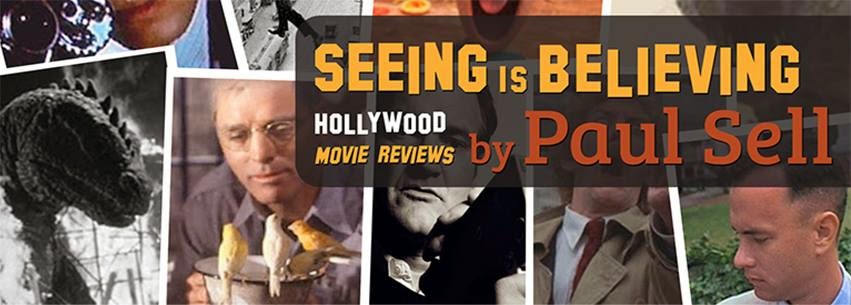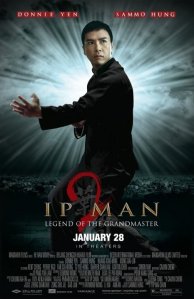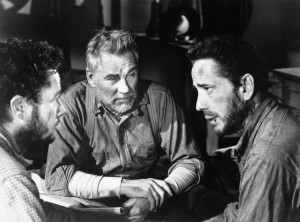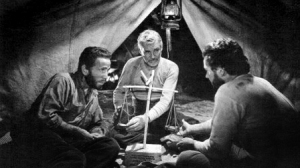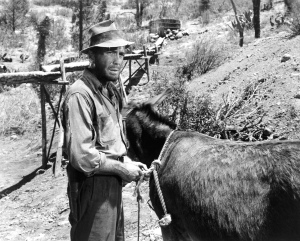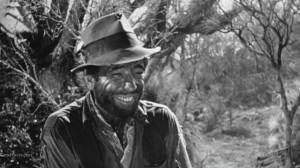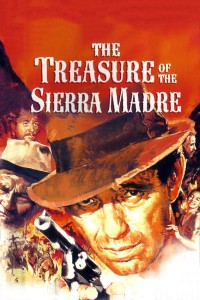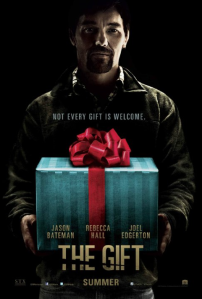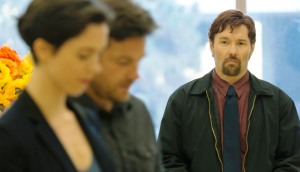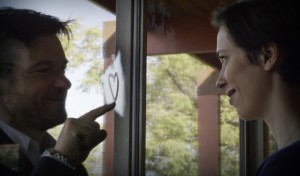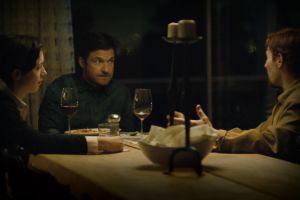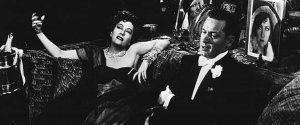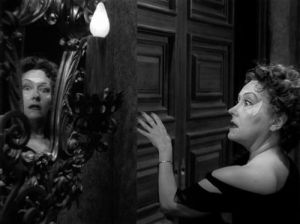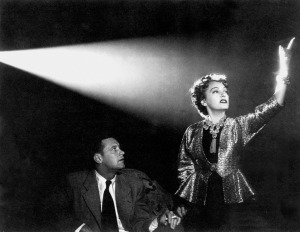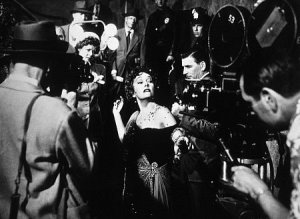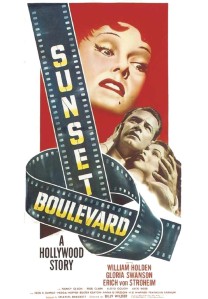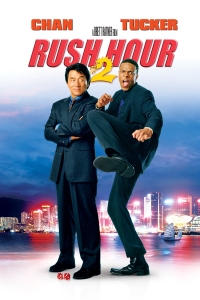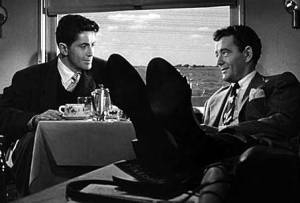Now that we're in the top ten, we finally get to take a look at my favorite filmmaker - Akira Kurosawa.
Most filmmakers have a difficult time breaking the language barrier, as their movies tend to resonate without their country. For some reason, Kurosawa's films work better in the United States than they do in Japan, giving him one of the largest international audiences of any filmmaker. Perhaps because most of his samurai pieces play out much like a western.
One of the main reasons Kurosawa's films have stuck with me more than the works of Alfred Hitchcock, Frank Capra and Billy Wilder, is because every single actor in a Kurosawa film is boiling with emotion. They don't use their face and voices to describe how they're feeling, but their entire bodies. Any role that Toshiro Mifune or Takashi Shimura performed under Kurosawa will show that his films are bursting with characters that don't want to hide anything from the camera and put everything on the line for the audience to witness.
Kurosawa's films take some of the better aspects of filmmaking, as they combine the suspense and thrill of a brilliant action movie, but the movies never lose touch with their humanity, all too often taking a difficult moral route. Films like "Rashomon," "Seven Samurai," "The Hidden Fortress" and "Throne Of Blood" excel at showing human trials at a time in history when humanity needed a little more hope.

But the tipping point that pushes Kurosawa ahead of other filmmakers in my eyes is his story of being a filmmaker, and the difficulty he faced in Japan. This may seem impossible, but back in the 1960s and 1970s, the Japanese film industry hated Akira Kurosawa. For basically the same reason we love him now - his films were far too western. Japanese audiences couldn't relate to these lone swordsmen who acted like cowboys.
After a string of films in the mid-1960s, the Toho film company got increasingly more frustrated with each film Kurosawa put out, as box office returns diminished and the Japanese critics didn't care for his movies. After his 1965 film "Red Beard," Toho let go of Kurosawa, and he entered into filmmaking exile. No Japanese film studio wanted to be associated with any of his work, for fear of being too American.
During the 1970s, Kurosawa only made two films, despite constantly looking for companies to fund his projects. One of these films, "Dersu Uzala," had to be made in Russian, since only one film studio in Russia was willing to fund the film. Kurosawa was at a low point in his life, where at one point he attempted suicide and failed.
It wasn't until 1980 that Kurosawa would catch a break. Having such a gigantic influence in Hollywood, two young filmmakers stepped forward to pay for Kurosawa's next movie - George Lucas and Francis Ford Coppola, the director of "The Godfather" series. This would lead Kurosawa's grand return to filmmaking, "Kagemusha," which was well-received around the world and finally shown that Akira Kurosawa was a filmmaking that transcended language barriers.
But, in Kurosawa's own words, "Kagemusha" was merely a set-up for his next film, a project he had worked on since "Red Beard," and would bring together the scale and size of films like "Seven Samurai," the atmosphere of "Kagemusha," and the personal turmoil that Kurosawa had experienced for over twenty years - his magnum opus "Ran."
Set in medieval Japan, during a time when waring factors would endlessly fight over land, a young shogun Hidetora Ichimonji rose to power, collecting the armies of his fallen foes. For fifty years, Ichimonji fought and conquered the majority of Japan. Now, Ichimonji (Tatsuya Nakadai) has reached an old age and is content with keeping peace throughout his land. He figures that his three sons feel the same way, and that is why he splits up his territories and powers among his sons, hoping that this will make everyone happy.
Turns out Ichimonji was wrong. Very wrong. He had forgotten that his sons grew up in a time of constant war and death, always seeking power and greed. Now his sons plan to fight among themselves to claim ultimate control over the land, while Hidetora watches his empire crumble right before his eyes.

Many have pointed out that "Ran" is a Japanese adaptation of Shakespeare's "King Lear," only replacing Lear's three daughters with sons. Kurosawa actually debunked this early on, saying it is merely a coincidence that "Ran" turned out a lot like "King Lear." Kurosawa said that his biggest inspiration for "Ran" was of a real Japanese shogun who gave his land to his three sons, and everything turned out for the better. Kurosawa then asked himself, "What if those three sons were actually bad people?"
There is an analogy early on in "Ran" where Lord Ichimonji has his sons each break an arrow, which they all do with no problem. Then he tells them to break three arrows bundled together, and none of them can break it. Ichimonji does this to prove that it is more difficult to break something when it has support from others, and that if his sons worked together, no one could defeat them.
Kurosawa said he heavily disagreed with that analogy. That there are plenty of ways to break three arrows, and that a family bond can be broken just as easily.
In Japanese, "Ran" translates to "chaos." An accurate description to this film, as we witness literal hell on Earth. Something that started off so simple and kind, quickly turns to brother killing brother, abandoning loved ones to acquire more power, and bloody battles that lead to massive castle getting burnt to the ground.
Lord Ichimonji witnesses all of those happen around him. From the beginning it is strange, as the new lord Taro, demands that his father give back the family crest and that he is in charge of every decision the kingdom will make, showing zero respect for the legacy of his father. After that, Taro outlaws his father's best troops from going along with him, to show Hidetora has gone insane in his old age and is no longer fit to rule anything.
Which leads to one of the greatest sequences I've ever seen, as Hidetora takes refuge in his last remaining castle, only for his two eldest sons, Taro and Jiro, to converge on him and assault the castle. Hidetora's troops are caught off guard and are overwhelmed by the stream of blood-red and sun yellow soldiers that continually enter the castle gates.

This isn't a war, but a massacre, as each body is rattled with arrows and musket bullets. One of the few survivors lies on the ground, holding his severed arm. Hidetora's concubines commit seppuku on each other, while hundreds of troops begin shooting the castle with fire arrows, setting the stone fortress ablaze. All while Hidetora sits atop the tower, watching his fifty-year legacy get reduced to ash.
The assault on the castle is complimented by the lack of any sound effects for the first half, only a haunting score that demonstrates the chaotic nature of Hidetora's senile decision to bring peace in a time of war and control. We are left with nothing but the strong visuals of bodies being brutally destroyed. No computer effects were used in "Ran," so when Hidetora walks out of that burning castle, every bit of it was real.
A reoccurring theme throughout "Ran" is the Gods that are watching all of this unfold. That these Gods either fell tremendous sadness for not being able stop man's self-destructive nature, or that there are no Gods at all. What kind of God would let a man so insistent on peace and prosperity watch his dream and empire fall apart? One of the most common shots throughout "Ran" is of large clouds, or the sun barely breaking through those clouds, as if the Gods are attempting to watch the horror unfold.

But what gives "Ran" its staying power are the resemblances between Hidetora and Akira Kurosawa. Both are men who have lived long fruitful lives, have seen large amounts of success and failures, and have essentially built empires. Yet when they least expected it, the world turned on them. Hidetora's sons betrayed his trust and disrespected him, while Kurosawa was forgotten by the Japanese film industry. Both are forced into exile, forgotten by the world for all the great things they had done. They even both attempt suicide and fail at that.
Hidetora Ichimonji is Akira Kurosawa. All his hopes, dreams, failures and personal tragedies are put on full display for the world to see. We watch as Hidetora is reduced to a quivering mess of a man who would rather pick flowers than face the trauma of his decisions, driven into senility. Kurosawa made "Ran" when he was 75, after dealing with 20 years of filmmaking exile in his home country. One of the greatest filmmakers of all time, unable to create his dreams.
Hidetora has more in common with Kurosawa than he does with King Lear.

In my look at John Carpenter's "The Thing," I mentioned there was one film that scared me more than that horror film. "Ran" is that movie. While I would certainly hesitate to call "Ran" a horror film, it is horrific in its tragic imagery. To watch Hidetora, a once powerful man with hundreds of thousands of troops at his command, be reduced to a walking ghost, powerless to stop everything he built from collapsing, is haunting to witness.
"Ran" is one of the greatest tragedies I've seen, complimented by a beautiful color palette that makes every shot of Hidetora stand out. Most of the background are drab and colorless, like rocky terrains, but the blood remains bright red and are impossible to miss because of the unimpressive backgrounds. But ultimately, "Ran" is about an old man who has seen enough war that he believes he can influence the next generation, unaware that life is constantly changing and will tear his weakness and kindness.

